
Track Overview
The Addiction Medicine Track is designed to offer interns comprehensive training and experience in the assessment and treatment of substance use disorders (SUD) in a tertiary psychiatric care setting. Interns will work as part of a multidisciplinary treatment team that includes psychiatrists, social workers, medical fellows, and peer support specialists, along with a supervising clinical psychologist. The primary treatment modalities emphasized in this track include cognitive-behavioral therapy (CBT)/skills training, motivational enhancement therapy (MET), and behavioral support for medication management. Interns will gain exposure to pharmacological approaches to SUD treatment by virtue of working with patients receiving pharmacotherapy (e.g., naltrexone, buprenorphine) and with team physicians to coordinate patient care. Clinical activities include the UNC Substance Use and Treatment and Recovery (STAR) clinic (outpatient services), the IV Drug Use Consult Service (inpatient services), and the UNC Horizons Program. Efforts are made to ensure that interns acquire opportunities with patients from a diverse range of cultural and socioeconomic backgrounds, including populations diverse with respect to race/ethnicity, religion, socioeconomic status, disabilities, sexual orientation, and sexual identity. Interns will also acquire experience with diverse populations by engaging in telehealth services with patients from rural/under-resourced areas of North Carolina.
The Addiction Medicine track is federally funded by an award from the Health Resources and Service Administration (HRSA). To be eligible for this internship position, applicants must be US citizens or permanent residents.
Program Coordinator
APPIC Program Code
Clinical Rotations
The Substance Treatment and Recovery (STAR) clinic at UNC is a multidisciplinary clinic that provides treatment for substance use and other co-occurring behavioral health concerns. This includes individual and group therapies, case management, addiction pharmacotherapy and psychiatric medication management, and peer support. The primary clinical populations served include mostly adult patients (with some adolescents age 13+) with alcohol use disorder, opioid use disorder, and stimulant use disorder; interns will also gain exposure to other diagnostic populations. Patients typically present with a range of addiction severity and acuity, and often present with co-occurring psychiatric conditions (e.g., mood disorders). All interns will gain experience in SUD assessment and treatment (both individual and group-based modalities) using evidence-based frameworks (e.g., American Society of Addiction Medicine placement criteria). Interns will work as part of a multidisciplinary team including physicians, medical fellows, social workers, and peer support specialists.
This rotation will also emphasize training in telehealth service delivery, including providing assessment and treatment to UNC Health patients in outlying/rural regions of North Carolina. Additional opportunities that may be available in this track include group cognitive-behavioral treatment for alcohol use disorder (in person and virtual) and conducting assessment and brief interventions with patients in the inpatient Addiction Medicine services. Opportunities for attending clinical didactic rounds for focused skill development (e.g., motivational interviewing) will also be available.
Supervisor: Lucien Gonzalez, PhD
The Inpatient IV Drug Use Consult Service is a multidisciplinary subspecialty consultation service with a primary focus on hospitalized adults with severe complications from IV drug use (e.g., endocarditis, osteomyelitis). The intern will work as part of a multidisciplinary team at the UNC Medical Center. Team-based responsibilities include: rounding with the team members, participation in morning team sign-out, contributing to case formulation and discussion. Intern-specific responsibilties include: providing education to multidisciplinary team members where appropriate and identification of candidate patients for individual psychotherapy. The intern will also have the opportunity to provide individual, evidence-based interventions to appropriate patients who are hospitalized, on average, for 4-6 weeks. These interventions may focuse on prevention of and intervention for drug use and/or increasing motivation to seek care upon hospital discharge.
Supervisor: Lucien Gonzalez, PhD
Within the UNC Department of Obstectrics & Gynecology, Horizons is a substance use disorder and trauma treatment program designed for pregnant and/or parenting women through a prenatal clinic, an outpatient treatment program, and two residential treatment programs for women and their children. Interns will co-facilitate parenting groups and mother-child psychotherapy using evidence-based models such as Child Parent Psychotherapy, Parent Child Interaction Therapy, Trauma Focused Cognitive Behavioral Therapy, and Circle of Security Parenting. Over time, interns will be able to lead parenting groups, follow at least one mother-child dyad in the residential program through child-parent psychotherapy, and learn how substance abuse and intergenerational trauma impacts infant/child social and emotional development. Interns may also have some experiences conducting perinatal child psychotherapy and working with infants with neonatal abstinence syndrome.
Supervisor: Evette Horton, PhD
Additional Track Opportunities
A half-day training workshop in Motivational Interviewing (MI) is typically offered to all STAR clinicians in the first week of July. This workshop emphasizes orientation to MI, foundational skills, and interactive training exercises. In addition, during the internship year interns may elect to participate in a weekly clinical didactic seminar that includes a focus on advanced MI intervention skills, along with occasional opportunities for coding/feedback related to MI proficiency. Interns will also have opportunities to attend guest lectures and didactic sessions focused on current topics in addiction medicine, which are offered occasionally throughout the year.
Training and professional development goals are an explicit focus of training and supervision activities in the Addiction Medicine track. The intern’s professional development goals (including clinical, research, and teaching goals) will be identified at the outset of the year and reviewed at regular intervals.
As noted above, there are opportunities for training in clinical and translational science projects.. Interns in this this track will have opportunities to interact with addiction scientists and collaborators associated with affiliated Centers (e.g., Bowles Center for Alcohol Studies). Interns will have opportunities for mentored experiences in manuscript preparation, and (if desired) training grant preparation (e.g., F32) as part of the research rotation.
Whenever possible, interns will have opportunities to supervise graduate-level clinical psychology practicum students, and/or to provide education and training to medical students and psychiatry residents. These opportunities may vary from year to year depending on the number of additional trainees in the clinical service. Interns may also have the opportunity to supervise/mentor junior team members on research projects (e.g., data analysis and manuscript preparation).



